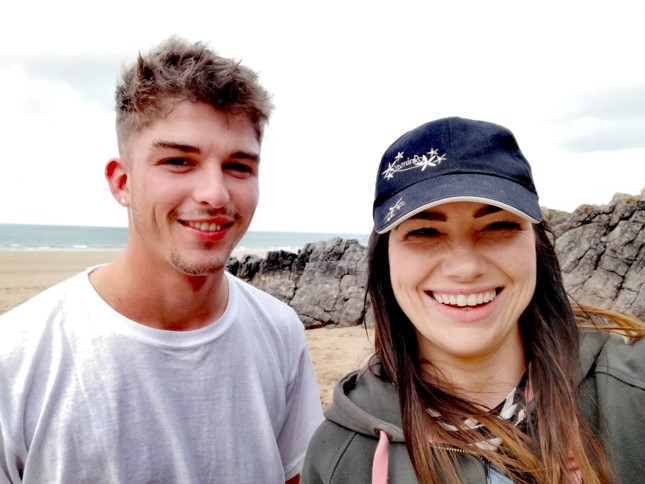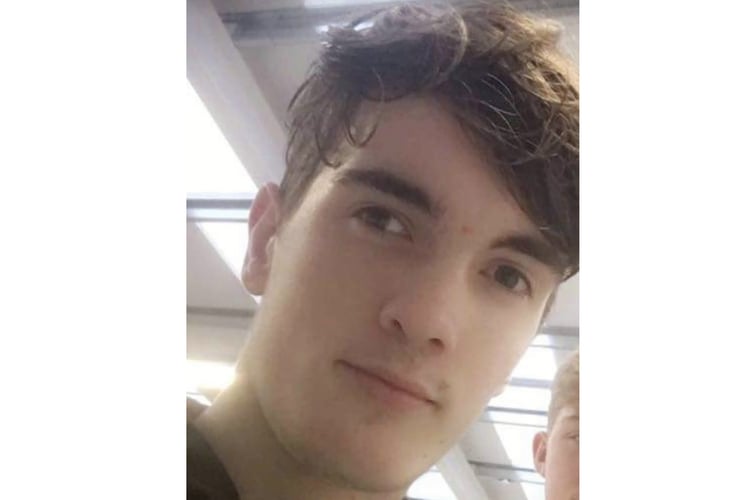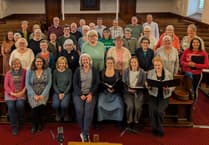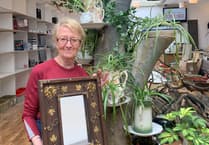‘Horrendous’ suicide rates across mid Wales have prompted pleas for greater support by bereaved families, regional authorities and charities.
Ceredigion has the highest suicide rate per 100,000 people in England and Wales, Office for National Statistics (ONS) data has revealed.
The Cambrian News has spoken with two grieving mothers from the area whose young sons have taken their own lives in the last few years.
They say improvements need to be made in education, mental health services and policing to help those vulnerable to suicide and their families.
This newspaper also questioned regional authorities about why so many residents are ending their own lives and what can be done to reduce the frequency of suicides in Ceredigion.
Those we consulted were keen to emphasise the variety of services available to people in the county – and said huge progress had been made to combat the issue in Wales over the last few decades.
“
Ceredigion has the highest suicide rate per 100,000 people in England and Wales
Office for National Statistics
The figures released last month show that 20.1 suicides took place for every 100,000 people in the local authority area from 2019 to last year.
This is nearly double the rate in the similarly rural Welsh regions of Gwynedd, the Isle of Anglesey, Carmarthenshire and Pembrokeshire.
It is also up from a rate of 18.2 in the equivalent ONS dataset for the years 2017 to 2019.
At least 35 people have killed themselves in Ceredigion since 2019.
Powys also has the third highest rate in Wales, with 15.8 suicides per 100,000 people.
Earlier this month, two inquests at the coroner’s court in Aberystwyth involved tragic suicides.
But why is the suicide rate so high? And what can authorities do to reduce rates and support victims?
“There is nothing like the pain of losing your child to suicide... it never leaves you,” said Llandysul mother-of-three Rhian Wyn.
“I’m reminded of him constantly. But sometimes it can be too painful and exhausting.
“I was left to grieve completely on my own. You can’t heal unless you’ve got support.”
Full-time nurse Ms Wyn lost her 20-year-old son Caio to suicide in January 2020 and says her life has never been the same.

Bereaved families like Ms Wyn’s are pleading for better services from authorities for those affected by suicide, charities say.
They are critical of under-funded mental health provision which cannot care for people when they need it most.
They say better training is needed for police officers whose responsibility it is to break the news of suicides to victims’ families.
And they also hope enhancing education – particularly for young men – can usher in a more open and tolerant society, and save lives.
Linda Collins’ son Thomas took his life on the eve of beginning his studies in computer science at Aberystwyth University, aged 19.
When asked what she thought of the ONS figures, she said: “Horrendous. Sad. Sick. Unacceptable.”
Referring to her son, she said: “He’d passed his theory test and was going to university.
“He was happy. He was applying to volunteer abroad. There were no warnings. Nothing.
“We’re left with this massive question mark.”

Help is out there...
Samaritans helpline
Call on 116 123, email at [email protected], or visit www.samaritans.org to find your nearest branch.
PAPYRUS
Call 0800 068 4141 or email on [email protected] or text 07860 039967
Suicide Prevention UK
Call 0800 689 5652
The DPJ Foundation
Call 07984169652 or 0800 587 4262 or email [email protected]
Mind
Call on 0300 123 3393 or email [email protected]. For Mind Aberystwyth, call 01970 626 225.
Both mothers were highly critical of the police officers who visited their homes to inform them of their sons’ deaths.
Ms Collins alleges the police officer who revealed her son’s suicide couldn’t find where she lived and, after calling her up to ask, refused to reveal why he was going to her house over the phone.
After breaking the news at her door in front of her younger son, he then took boy, aged 15 at the time, in the car with him so he could direct the officer to his father’s house to be informed.
He dropped her son back and then left without providing any counsel to her.
“It was horrendous,” she said.
“There needs to be greater training for emergency services because what it’s done psychologically to me – the whole trauma – I’m having therapy and I still struggle every day.”
Ms Wyn’s experience was eerily similar. She claims she was left with no support at all once the police officer had left her home.
“It was horrendous, the way I was told”, she said. “It was a newly qualified police officer on his own and after he’d told me he just stood there saying he didn’t know what to say.
“And then he left and that was it.
“I had two little girls on the top of the stairs and they were just listening to me screaming downstairs.
“That’s where the changes need to start. There needs to be training.”
Ms Wyn has spent time working as a cancer specialist nurse at Bronglais Hospital in Aberystwyth, and she says she is used to difficult conversations.
She is currently running a vaccination clinic in the region. She told us that she is all too aware of the limitations of the NHS.
“We tried everything to get help,” she said.
“A few days before he died, he visited his GP and she was so concerned she kept him in her office all day and tried to get the crisis team to come and see him.
“They never arrived. She had to send him away.
“I tried to get him in with CAHMS (Child and Adolescent Mental Health Services) but they said he wasn’t ill enough.
“We tried counselling too but the waiting lists are beyond desperate.”
“
The sooner there’s help, the sooner someone’s life is saved.
Linda Collins, whose son Thomas took his own life
Ysbty Ystwyth resident and mother-of-one Ms Collins said she had to get private counselling for her younger son because she could not afford for him to wait months for attention. She waited 12 months, she claims.
Although her son had a history of only minor anxiety, she could never have predicted his suicide.
“The sooner there’s help, the sooner someone’s life is saved,” she added, speaking of mental health services.
“A lot of youngsters have given up trying to get help. Too many times have they been told nothing’s available or forced to wait for months.
“It’s frustrating because things are available – we should not be telling young people services are not there, however difficult to access they are.”
Ms Wyn said creating a more open environment would mean people are more likely to talk to someone – while it would be easier for victims too.
“At the moment, it’s down to people, mothers in particularly, and those who experience suicide, to educate other people about it,” she said.
“It should be spoken about freely.
“My family didn’t want to discuss suicides; they didn’t want to go and see my beautiful boy’s body – it was like a dirty thing. They disowned me afterwards and left me alone to grieve.”
Both mothers call for better education on mental health but also specific lessons in schools about suicides.
“I just wish boys would speak more. Things are changing but girls will sit and talk and they get help for it and share it,” Ms Collins said.
“Boys do not speak. Many of Thomas’s friends won’t speak. My younger son won’t speak. I hope the next generation are going to grow up.”
Latest figures from the ONS show that 346 people died by suicide in Wales in 2021.
Charities point to analysis showing that since 2010, men aged 45 to 64 years have had the highest age-specific suicide rates.
But rates are also decreasing across most demographics other than in young people aged 11 to 19 – a group of particular concern to charities.
National suicide prevention charity and call service Samaritans highlights analysis which shows that rates are two to three times higher in the most deprived areas compared to the most affluent.
The charity says the top five reasons people kill themselves are mental illness, family issues, isolation or loneliness, relationship problems and physical illnesses.
“
There’s no single cause of suicide. Sometimes it’s unpredictable.
Bleddyn Lewis, former mental health services manager in Ceredigion
Senior lecturer in health education and former mental health services manager in Ceredigion, Bleddyn Lewis, told Cambrian News that seeing the latest suicide data ‘was a bit of shock’.
But he insisted it is difficult to pinpoint reasons why Ceredigion would be worse than other places – particularly similar surrounding areas.
He said: “There’s no science to it.
“There’s no single cause of suicide. Sometimes it’s unpredictable.
“There’s often no signs or symptoms to show that the person would carry out that action.
“And in my career, I’ve come across a lot of people who are in that category.
“Many have very supportive families, a good care and treatment plan, good help from statutory services and despite all of that they still manage to complete suicide.
“Mental health services have evolved and improved a great deal in the last few decades.
“We have care in the community services providing care 24/7, initiatives with crisis resolution, home treatment teams.
“In Aberystwyth we have a lot of mental health services but there’s also been investment into the third sector as well, so we have big charities like Hafal and Mind who do a lot of work.”
Carmarthen-based Kate Miles, the director of the DPJ charity set up in honour of her late husband who took his own life, supports farmers and rural workers vulnerable to suicide.
On why the suicide rate is so high, she said: “A definite challenge for people accessing our service from Ceredigion is the rurality of the area.
“We speak to people who are in crisis and who may benefit from attending a sanctuary service however, it is not an option if they are miles away on the top of a mountain with no way to get there (or if they have consumed alcohol or drugs).
“For the population that we work with, accessing services in their first language (often Welsh) is important, but can be challenging.”
Chief executive of national suicide bereavement charity Papyrus, Ged Flynn, said: “We know more young people are feeling lonely, distressed and struggling to cope with life.
“Social media, a less than subtle glorification of exam success, long waiting lists for mental health care, a lack of privacy, a failure to resource our young people with life-skills, blatant commodification of young people by gaming and gambling companies all culminate in some young people giving up hope.
“There is nothing better in our darkest hour to have a human conversation with a person who can help us navigate emotional distress and keep us suicide safe.”
Chris Howells, chief executive of Mind Aberystwyth – which has seen a ‘significant increase’ in service users over the last two years – said: “Early support for mental health problems is vital because without it, people can find their health gets worse and in some cases that can lead to mental health crisis.
“That’s why we’re calling on the Welsh Government and local health boards to improve access to services for everyone and ensure people can access high-quality timely support.”
Concerned?
If any family member or friend or member of the public is concerned about a person’s mental health they can phone the Health Helpline on 111 or in an emergency where there is a risk to Health phone the emergency services on 999. Hywel Dda University Health Board provide a Single Point of Contact service via 111 Press 2.
This service operates seven days a week from 9am to 11.30pm for anyone who is concerned about their own or another’s mental health.
The Cambrian News attended coroner’s inquests in Aberystwyth this month only to hear about two upsetting suicides.
In the first, the inquest heard how a police officer was called to the scene of his school friend’s suicide in Llandysul.
A man took his own life in the shed of his family home on 13 December last year, the assistant coroner Louisa Corcoran concluded on 11 October.
A different officer was the first on the scene and described how the victim’s wife had received a phone call from him where he had told her that ‘he couldn’t take it anymore.’
The officer described the couple had been through a ‘bad patch’ but later in the proceedings it was confirmed he had expressed no suicidal thoughts to any of his family.
His brother described how he stayed at his house the two nights prior to his eventual death. They happily discussed boxing the night before, he said.
On receiving the call notifying him of his brother’s death, he said: “It was totally unexpected.
“It was one thing I never thought I’d hear.”
The second inquest heard how a Llanon man took his own life after repeatedly resisting mental health treatment in Ceredigion.
The man died by suicide on 9 September last year in Pennant, Llanon, the assistant coroner concluded on the same day.
The inquest found a 34-year-old man died due to multi-drug toxicity which led to cardiopulmonary failure.
The man’s doctor provided a statement confirming he had refused therapy for his depression and had insisted on taking anti-depressants instead.
Before this, he had told the doctor he did not have suicidal thoughts and when he had presented for counselling he didn’t engage, the inquest heard.
He had tried to commit suicide several times in the past, it was later revealed.
But his father did say he never discussed his treatment or any thoughts of suicide with him.
Charities and regional authorities want the public to know there is always an alternative to suicide – and services are available to people, as can be seen in the list above.
“
We always respond to people in crisis and support other agencies who have primacy over those suffering a mental health crisis
Dyfed-Powys Police
The Cambrian News contacted Dyfed-Powys Police, Hywel Dda University Health Board and Ceredigion County Council about the issues raised in writing this story.
A police spokesperson said: “We always respond to people in crisis and support other agencies who have primacy over those suffering poor mental health or a [mental health] crisis.
“We have created the immediate response group whereby all partners and third sector agencies sit at the same table within 24 hours of a suspected suicide.
“This has been done through the regional safeguarding board forum in consultation with Welsh Government to try and bring consistency across Wales.”
A Ceredigion County Council spokesperson said it is developing a regional plan for suicide prevention in conjunction with the police and health board, which includes ‘increasing proactive and early responses to people in a mental health crisis.’
It has also expanded its school-based counselling provision for those at risk and is involved in a pilot developing a ‘rapid response model’ for families after suicide.
Director of operations at Hywel Dda University Health Board, Andrew Carruthers, said it is ‘redesigning services for the benefit of local people’.
“We are the first health board in Wales to provide a single point of contact service via 111 option 2 for anyone who is concerned about their own or another’s mental health,” he said.
“For people with low-level mental health challenges there is the nationally commissioned SilverCloud therapy, which people can self-refer to, as well as dedicated websites such as Dewis and IAWN.”




Comments
This article has no comments yet. Be the first to leave a comment.